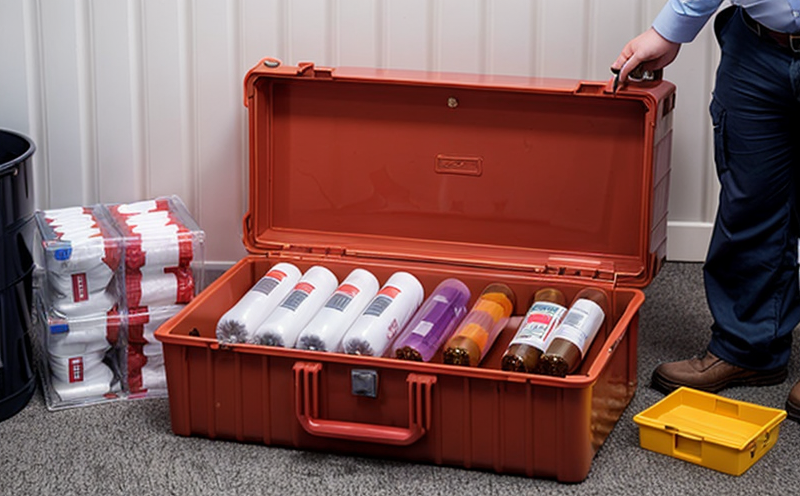
-
Pharmaceutical Compliance-
Pharmaceutical Distribution Compliance-
Compliance with Drug Storage and Handling Regulations
We provide comprehensive solutions designed to help our clients mitigate risks, enhance performance, and excel in key areas such as quality, health & safety, environmental sustainability, and social responsibility.
Discover
For many years, our organization has been operating successfully, boasting modern laboratories that meet international standards. These laboratories are equipped with the latest technology devices and equipment, and we have built a strong team of experienced and trained personnel to operate them.
DiscoverWelcome to Eurolab, your partner in pioneering solutions that encompass every facet of life. We are committed to delivering comprehensive Assurance, Testing, Inspection, and Certification services, empowering our global clientele with the ultimate confidence in their products and processes.
Discover
-
Pharmaceutical Compliance-
Pharmaceutical Distribution Compliance-
Compliance with Drug Storage and Handling RegulationsCompliance with Drug Storage and Handling Regulations
The storage and handling of pharmaceuticals are critical aspects of healthcare facilities operations. Proper management of medications requires adherence to strict regulations to ensure patient safety, prevent medication errors, and maintain a clean and efficient environment. In this article, we will delve into the importance of compliance with drug storage and handling regulations, highlighting key guidelines, best practices, and frequently asked questions.
Importance of Compliance
Compliance with drug storage and handling regulations is essential for several reasons:
Medications should be labeled with their name, strength, and quantity.
Labels should be placed on the primary container and any secondary containers.
Labels must be legible and easy to read.
Medications should be stored in a cool, dry place away from direct sunlight.
Temperature-sensitive medications require specific storage conditions (e.g., refrigeration or freezer).
Alkaline substances like strong bases (sodium hydroxide) should not be stored near acidic substances like acetic acid.
Best Practices for Drug Handling
Safe handling of medications is crucial to prevent errors and contamination:
Medications should be handled with clean, dry hands.
Gloves may be required when handling certain medications (e.g., those containing latex or other allergens).
Staff members must wash their hands before and after handling medications.
Before dispensing medication, staff members should verify the label with the patients prescription and medical chart.
Labels should be checked for accuracy, including name, strength, quantity, and expiration date.
Common Challenges and Solutions
Facilities often face challenges when implementing drug storage and handling regulations. Some common issues include:

IT and Data Center Certification
IT and Data Center Certification: Understanding the Importance and Benefits The field of Informatio...

Pressure Vessels and Installations Testing
Pressure Vessels and Installations Testing Pressure vessels are a critical component of various ind...

Fire Safety and Prevention Standards
Fire Safety and Prevention Standards: Protecting Lives and Property Fire safety and prevention stan...

Automotive Compliance and Certification
Automotive Compliance and Certification: Ensuring Safety and Efficiency The automotive industry is ...

Aviation and Aerospace Testing
Aviation and Aerospace Testing: Ensuring Safety and Efficiency The aviation and aerospace industr...

Consumer Product Safety
Consumer Product Safety: Protecting Consumers from Harmful Products As a consumer, you have the rig...

Cosmetic Product Testing
The Complex World of Cosmetic Product Testing The cosmetics industry is a multi-billion-dollar ma...

Transportation and Logistics Certification
Transportation and Logistics Certification: A Comprehensive Guide The transportation and logistics ...

Product and Retail Standards
Product and Retail Standards: Ensuring Quality and Safety for Consumers In todays competitive marke...

NEBS and Telecommunication Standards
Network Equipment Building System (NEBS) and Telecommunication Standards The Network Equipment Bu...

Electromechanical Safety Certification
Electromechanical Safety Certification: Ensuring Compliance and Protecting Lives In todays intercon...

Military Equipment Standards
Military Equipment Standards: Ensuring Effectiveness and Safety The use of military equipment is a ...

Battery Testing and Safety
Battery Testing and Safety: A Comprehensive Guide As technology continues to advance, battery-power...

Electrical and Electromagnetic Testing
Electrical and Electromagnetic Testing: A Comprehensive Guide Introduction Electrical and electrom...

Pharmaceutical Compliance
Pharmaceutical compliance refers to the adherence of pharmaceutical companies and organizations to l...

Environmental Simulation Testing
Environmental Simulation Testing: A Comprehensive Guide In todays world, where technology is rapidl...

Construction and Engineering Compliance
Construction and Engineering Compliance: Ensuring Safety, Quality, and Regulatory Adherence In the ...

Environmental Impact Assessment
Environmental Impact Assessment: A Comprehensive Guide Environmental Impact Assessment (EIA) is a c...

Energy and Sustainability Standards
In today’s rapidly evolving world, businesses face increasing pressure to meet global energy a...

Renewable Energy Testing and Standards
Renewable Energy Testing and Standards: Ensuring a Sustainable Future The world is rapidly transiti...

Agricultural Equipment Certification
Agricultural equipment certification is a process that ensures agricultural machinery meets specific...

Lighting and Optical Device Testing
Lighting and Optical Device Testing: Ensuring Performance and Safety Lighting and optical devices a...

Railway Industry Compliance
Railway Industry Compliance: Ensuring Safety and Efficiency The railway industry is a critical comp...

Food Safety and Testing
Food Safety and Testing: Ensuring the Quality of Our Food As consumers, we expect our food to be sa...

MDR Testing and Compliance
MDR Testing and Compliance: A Comprehensive Guide The Medical Device Regulation (MDR) is a comprehe...

Industrial Equipment Certification
Industrial equipment certification is a critical process that ensures industrial equipment meets spe...

Chemical Safety and Certification
Chemical safety and certification are critical in ensuring the safe management of products and proce...

Hospitality and Tourism Certification
Hospitality and Tourism Certification: Unlocking Opportunities in the Industry The hospitality and ...

Healthcare and Medical Devices
The Evolution of Healthcare and Medical Devices: Trends, Innovations, and Challenges The healthcare...

Trade and Government Regulations
Trade and government regulations play a vital role in shaping the global economy. These regulations ...